 Fighters of Lanzhou MAC in confrontation training
Fighters of Lanzhou MAC in confrontation training
 3D printing to trigger third industrial revolution
3D printing to trigger third industrial revolution
 Top 10 brands that win rich women's hearts
Top 10 brands that win rich women's hearts
 Deng Xiaoping: 'I have a clear conscience all my life'
Deng Xiaoping: 'I have a clear conscience all my life'
 Xi Jinping: 'The people are our strength'
Xi Jinping: 'The people are our strength'
 Amazing cliff diving in cold winter
Amazing cliff diving in cold winter
 Enjoy Sochi 2014 in slow motion
Enjoy Sochi 2014 in slow motion
 University student sentenced to death for poisoning roommate
University student sentenced to death for poisoning roommate
 Chinese lunar New Year celebrated in San Francisco
Chinese lunar New Year celebrated in San Francisco
"An extremely long day .... It was like the TV series '24,' only it took place in a hospital," Li wrote in a post on WeChat, a popular instant messaging service.
"WE'RE VULNERABLE, TOO"
Li worries the traumatic event will take its toll on medical workers involved in the rescue, especially given that they had never handled injuries following such a terror attack before.
For those new to their jobs, the challenge may be even more grave.
There are more than 30 nurses working in the hospital's ICU, with the youngest aged 18 years old. Some of them told Xinhua they did not feel fear when they were busy, but were overwhelmed by depression and anxiety during breaks, and felt guilty when their patients died.
"Actually, health care workers are mentally fragile because we habitually recall our exposure to the injured from a medical standpoint," Li said.
So far, more than 2,000 medical workers at state, provincial and municipal levels are fighting on the front lines to treat the injured survivors of the violence, including a 35-strong expert panel dispatched by the National Health and Family Planning Commission.
Medical professionals should be mentally prepared for their jobs, Li said. "But as a group of people repeatedly exposed to harrowing scenes, who can we count on to get mental support for ourselves?" he said.
After working around the clock for days, Li and his peers were indignant about a news report that said a nurse from Nanjing in the eastern province of Jiangsu was maimed during a medical dispute on Feb. 24.
A Thursday statement from the Nanjing public security bureau said the assailants, a couple who are both government officials, were held responsible for committing the violence.
"We are saving people who were stabbed, while we ourselves might be stabbed one day," said a nurse, quoting a post that circulated on WeChat.
Despite the complaints, Li said, "There's no doubt that we'll always put patients first. That's our job."

 Chaihe village, pure and peaceful fairyland in snow
Chaihe village, pure and peaceful fairyland in snow Belgians warmly welcome arrival of China's giant pandas
Belgians warmly welcome arrival of China's giant pandas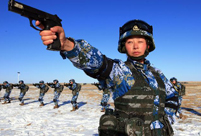 Female marines receive tactical training in NW China
Female marines receive tactical training in NW China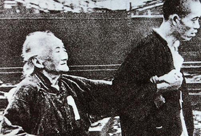 Blood memory: Nanjing Massacre in 1937
Blood memory: Nanjing Massacre in 1937 Top 10 pure beauties in showbiz
Top 10 pure beauties in showbiz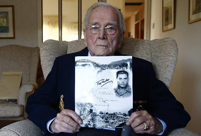 British WWII veteran: I can't forgive Japan
British WWII veteran: I can't forgive Japan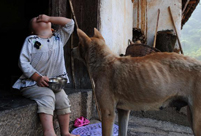 Tongban's dream of prosperity
Tongban's dream of prosperity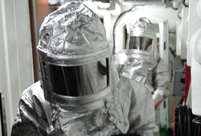 Chinese frigate Yancheng holds drills in Mediterranean Sea
Chinese frigate Yancheng holds drills in Mediterranean Sea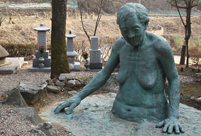 A visit to comfort woman's home in South Korea
A visit to comfort woman's home in South Korea Fairyland? Qingdao in sea of clouds
Fairyland? Qingdao in sea of clouds Top 10 most handsome faces in Asia in 2013
Top 10 most handsome faces in Asia in 2013 Female celebs with beautiful long legs
Female celebs with beautiful long legs Cat 'guardians' in Forbidden City
Cat 'guardians' in Forbidden City Large numbers of ancient coins excavated in Inner Mongolia
Large numbers of ancient coins excavated in Inner Mongolia Leisurely life beneath Zhonggulou, where time travels slower
Leisurely life beneath Zhonggulou, where time travels slowerDay|Week|Month